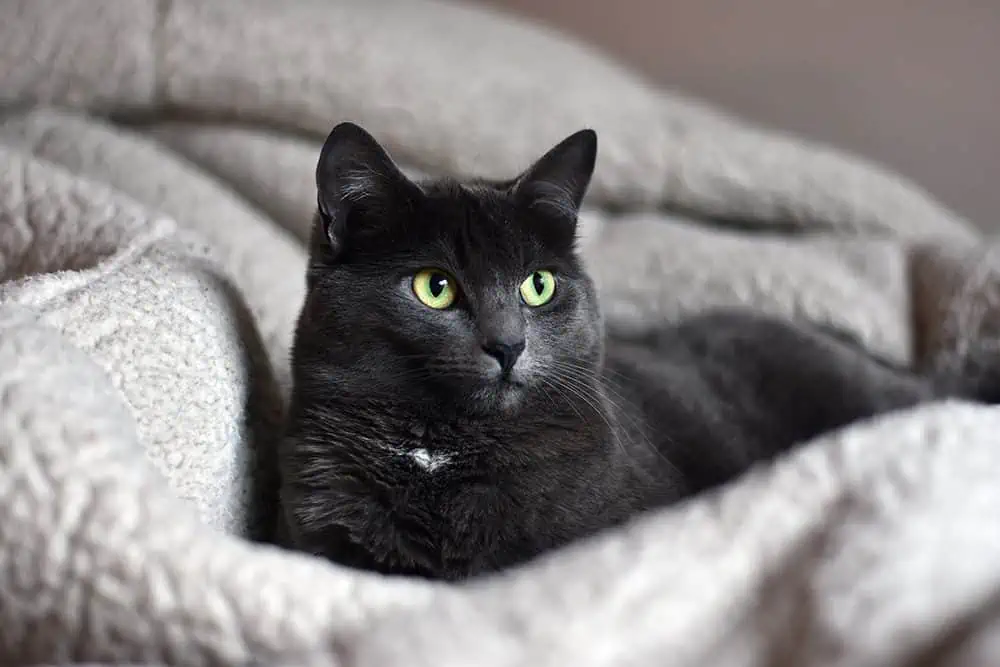
According to feline welfare charity International Cat Care, Black cats are the least popular when it comes to rehoming and adopting, stating: “Over the last year, Blue Cross admitted 4,722 cats, 19% of which were black, while Battersea Dogs & Cats Home has taken in 872 black cats, as opposed to 368 tabbies and 228 white cats. Additionally, on average, it takes an extra week to rehome a black cat compared to more colourful felines, with some remaining in rehoming centres for a year.”
Dr Jane Tyson, RSPCA’S scientific officer for the companion animals department, reiterates the fact that these dusky mini panthers often get overlooked: “It's a sad fact that black cats really don’t have much luck because we see more of them coming through our doors than any other colour of cat. Ginger and tabbies have the distinctive markings making them look more attractive to some.”
And perhaps this is the nub of the problem – human perception – which goes as far as people thinking that there are links between coat colour and how a cat will behave. People may be under the impression that black cats are aloof and tabbies are friendlier – but there is little hard evidence that such a connection is real.
CAT COLOUR BIAS
A recent study, reported on in The Smithsonian and carried out by researchers from California State University and the New College of Florida, set out to discover hidden cat colour biases. Some trends appeared – such as that ginger cats were perceived as friendly and rated low in the aloof and shy categories. Tri-coloured cats rated high in aloofness, white cats were considered shy and calm, while bi-coloured cats were thought to be friendly. The data for black cats, however, was less distinct, and no clear trends emerged. What the survey did reveal was that it’s people’s perceptions that say more about a cat’s nature and personality than the markings of their coat.
DID YOU KNOW?
Research by the National Institutes of Health suggests that genetic mutations
found in black cats seem to make them more resistant to illnesses such as feline
immunodeficiency virus, or FIV.
Mikel Delgado, lead author of the study and a doctoral student in psychology at the University of California, Berkeley, commented: “To date, there is little evidence that these perceived differences between differently coloured cats actually exist, but there are serious repercussions for cats if people believe that some cat colours are friendlier than others."
Dr Jane Tyson adds: “We would urge people to look beyond what an animal looks like. Their fur colour makes no difference to how much love they have to give.”
FIND OUT MORE about how black cats can bring some magic into your life by supporting Cats Protection’s National Black Cat Day
FIND expert tips on caring for your cat here
Sources: cats.org.uk, rspca.org.uk, smithsonianmag.com, newscientist.com, catster.com














